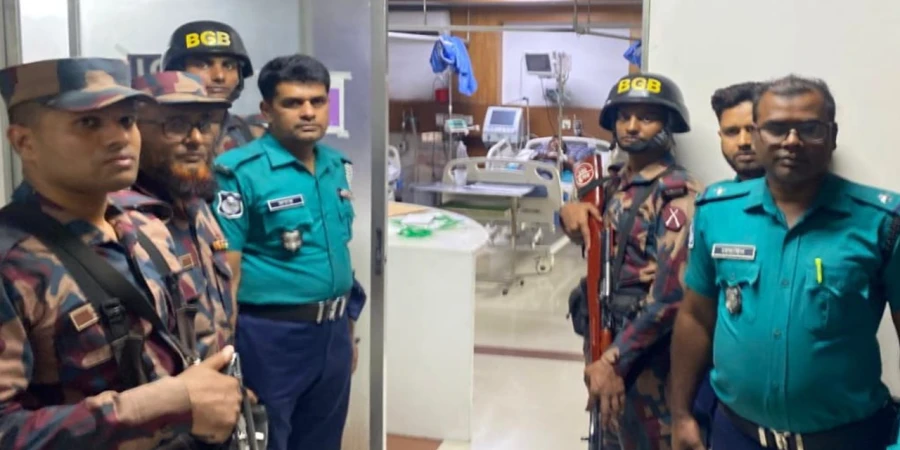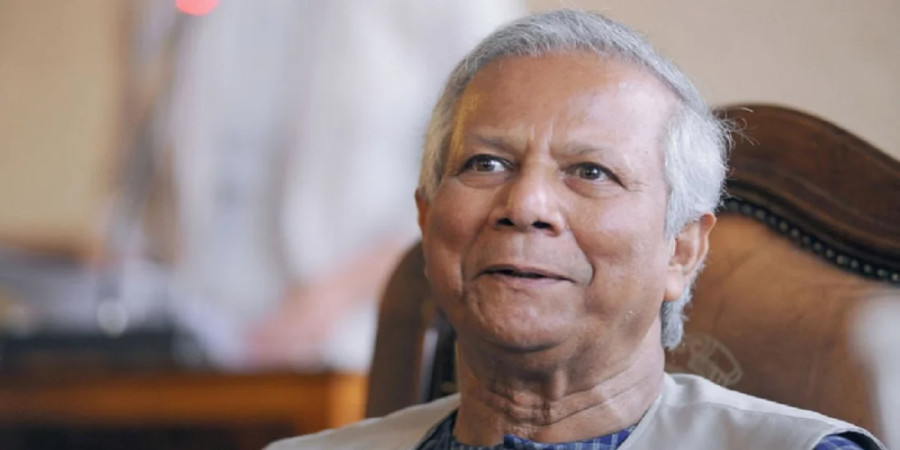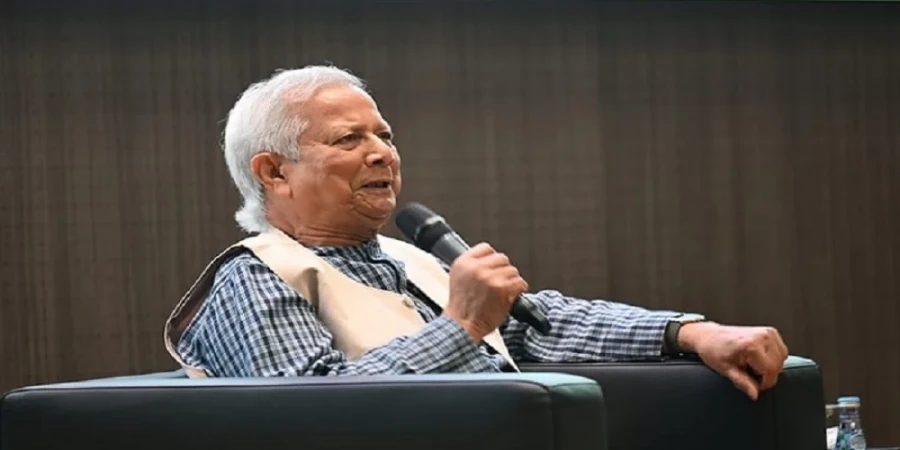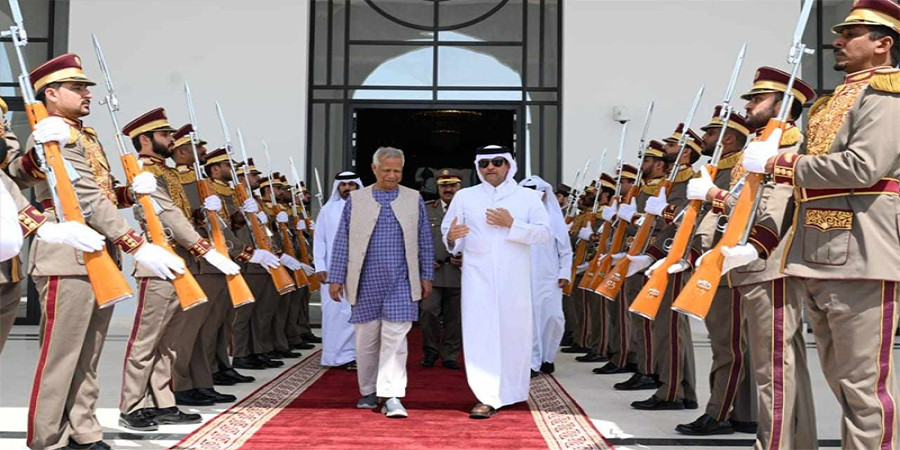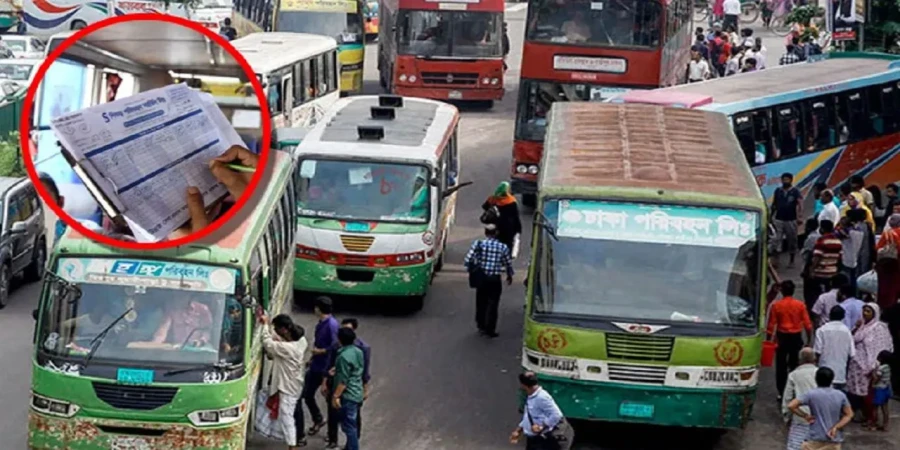
ছবি: Photo: Collected
Public transport operators in Dhaka continue to charge excessive fares despite the ban on the webel system. Passengers traveling on major routes, such as Abdullahpur to Bosila via Projapoti Paribahan and Gabtoli to Abdullahpur via Basumoti Paribahan, have reported sudden fare hikes. Previously, the fare from Kalshi to Khilkhet via the POS machine was set at 10 Taka, but transport staff are now demanding 15 Taka at their discretion. Similarly, the fare from Khilkhet to Kakrail via Badda has increased from 25 Taka to 30 Taka, while the fare from Khilkhet to Banani has risen from 10 Taka to 15 Taka. Although the webel system was banned three years ago, transport workers still use it as an excuse to impose these increased fares.
Shahadat Hossain, a small business owner, regularly commutes on the Khilkhet-Mirpur route. He reported that when he traveled on Projapoti Paribahan from Khilkhet to Mirpur 10, the fare collector demanded 20 Taka. When he requested an e-ticket, he questioned why the fare, which was 10 Taka on the POS machine, had doubled. In response, the transport worker curtly replied that the POS machines were removed by the owner, adding, "There are plenty of passengers. If you can’t afford it, get off." Shahadat, feeling helpless, had to pay the increased fare.
Similar irregularities persist across different routes. On the route from the Parliament complex to Moghbazar, Lovely Paribahan charges 20 Taka for a distance of less than four kilometers. A passenger who questioned this fare faced a heated argument with the fare collector. The bus driver intervened, stating that fares were being collected according to the webel system, as instructed by the owners.
Following criticism over excessive fare collection, the Bangladesh Road Transport Authority (BRTA) held a meeting with the Dhaka Road Transport Owners' Association on August 10, 2022. During the meeting, the webel system was officially abolished, and electronic POS machines were introduced to regulate fare collection based on distance. However, after a brief implementation, transport workers reverted to the old webel system, forcing passengers to pay up to the next checkpoint regardless of where they disembarked.
According to Dhaka Road Transport Owners’ Association General Secretary Md. Saiful Alam, public buses in Dhaka operated under contract-based arrangements for 16 years without proper regulations. This led to unfair competition, reckless passenger pickups, traffic congestion, and frequent accidents. He called for passengers to be more aware of fare regulations alongside efforts from transport owners and workers.
Recent observations across Dhaka’s major routes reveal that fare lists are absent on most buses. Despite the launch of counter-based e-ticketing on February 6, 2024, the system remains largely unimplemented. Most buses continue collecting fares through the webel system, ignoring regulatory changes.
Mozammel Haque, Secretary General of the Passenger Welfare Association, highlighted that public transport operators in Dhaka extort approximately 18.24 million Taka in excess fares daily. He emphasized that unless cash transactions are eliminated from the transport sector, fare irregularities will persist. To curb fare-related corruption, he suggested making e-ticketing mandatory for all buses and deploying mobile courts at every webel checkpoint. Additionally, he urged stricter enforcement of transport regulations.
BRTA Director (Operations) Mir Ahmed Tarikul Omar acknowledged ongoing fare discrepancies and stated that mobile courts are regularly conducted to ensure compliance. He added that fines are imposed on violators to encourage lawful operations within the transport sector.
However, some transport operators defend the webel system. SM Sourav, Managing Director of Bikash Paribahan Ltd., stated that webel tracking is essential for accurately accounting for passenger numbers and ensuring fair revenue distribution between bus owners and operators.
Advocate Mahbubur Rahman, former Organizing Secretary of the Dhaka Road Transport Owners' Association, noted that many transport workers perceive POS machines as a hassle. He explained that bus workers consider these devices an inconvenience and avoid using them, preferring to shift responsibility to the owners while justifying the continued use of the webel system.
repoter



